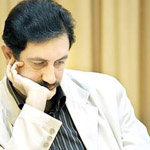Tehran Turns Towards the UNSC Non-Permanent Members
By Hossein Salimi .

In a press conference following Tehran’s Nuclear Disarmament Conference, Manouchehr Mottaki, Iran’s Foreign Minister, was quoted as saying that Tehran will work on the proposed nuclear fuel swap plan with the UN Security Council members.
Mr. Mottaki certainly knows that in a case as complex and critical as Iran’s nuclear program, the non-permanent UNSC members do not posses a significant ability to maneuver. It has been the general trend in the Council that most non-permanent members go along with whatever the veto-wielding members agree upon. There are no gains to be had for non-permanent members to oppose decisions taken against Iran and, unfortunately, chances for unanimity among UNSC members are higher if the global powers decide to prepare for another round of sanctions.
However, Tehran’s negotiations with the UN Security Council’s fifteen members indicate that it is searching for a mechanism to secure a nuclear fuel swap deal that all members can agree on, and it sees the non-permanent members as catalysts towards reaching an agreement. Non-permanent members may facilitate a convergence of opinion between Tehran and the five veto-wielding members of the Council. In fact, Tehran’s intentions in negotiations with non-permanent members may not be to persuade them to vote in favor of Iran, rather, they may be a search for a solution to reaching an agreement with the global powers who have permanent seats in the United Nations Security Council, thereby rendering further UNSC action against Tehran moot.
Hossein Salimi is professor of Allameh Tabatabae’i University, where he teaches international relations.
Mr. Mottaki certainly knows that in a case as complex and critical as Iran’s nuclear program, the non-permanent UNSC members do not posses a significant ability to maneuver. It has been the general trend in the Council that most non-permanent members go along with whatever the veto-wielding members agree upon. There are no gains to be had for non-permanent members to oppose decisions taken against Iran and, unfortunately, chances for unanimity among UNSC members are higher if the global powers decide to prepare for another round of sanctions.
However, Tehran’s negotiations with the UN Security Council’s fifteen members indicate that it is searching for a mechanism to secure a nuclear fuel swap deal that all members can agree on, and it sees the non-permanent members as catalysts towards reaching an agreement. Non-permanent members may facilitate a convergence of opinion between Tehran and the five veto-wielding members of the Council. In fact, Tehran’s intentions in negotiations with non-permanent members may not be to persuade them to vote in favor of Iran, rather, they may be a search for a solution to reaching an agreement with the global powers who have permanent seats in the United Nations Security Council, thereby rendering further UNSC action against Tehran moot.
Hossein Salimi is professor of Allameh Tabatabae’i University, where he teaches international relations.

